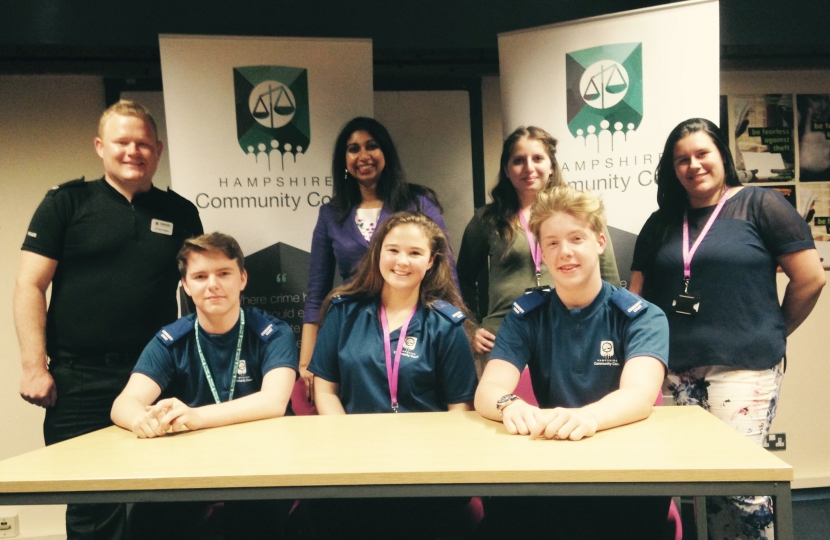
I was thoroughly impressed by the young people volunteering their time and skills as part of Hampshire Community Court at Fareham Police Station.
I attended one of the hearings involving a case of shoplifting. The parents of the respondent were present and were clearly affected by the incident, as was the respondent. The whole matter was conducted in a spirit of respect, education and honesty. From what I saw, I hope that this pilot is rolled out further as it serves an invaluable purpose of effectively dealing with minor and first-time offending outside the formal court system.
Under the supervision of PC Mark Walsh, the young volunteers are trained to operate a “peer court” to decide the outcomes for suitable young, first time offenders who commit applicable crimes.
The Community Court is the first in the country to hold peer-led hearings involving young people who have offended and any victims of a crime to primarily establish what harm has been caused and how it can be repaired. The programme works to enhance the police’s use of non-charged outcomes and is only available in suitable case as an alternative to prosecution via the criminal courts.
Those who have been referred have admitted their crime, the circumstances of the crime are such that a criminal prosecution is not being sought, and the respondent to the crime is willing to take part in a restorative process.
Restorative justice is an approach which brings together those harmed by a crime with those causing the harm to have a dialogue to decide what can be done to make things better. Both victim and respondent are invited to attend the hearing and each party has their own independent advocate.
The hearing’s panel is made up of volunteers aged 14 to 25 to ensure it is reflective of the people it serves. The respondent and victim party have an opportunity to have their say before the panel considers this information to confirm what outcome should be given. The purpose of the process is to educate the young person about any harm caused by their actions, provide an opportunity for the young person to show they have been rehabilitated/learned from their mistake and to restore any damaged relationships.
After the hearing, the respondent is given their outcome by the community court officer in a way they understand; it is not considered a criminal conviction. The respondent is given time to complete any directions they have agreed to, e.g. learning something related to the harms caused, being referred to the Youth Offending Team or carrying out some reparative work for the victim. The respondent’s progress is monitored and if the respondent gets into further trouble, the matter is reviewed.
Well Done to the volunteers, led by Eloise Peabody-Rolfe. Keep up this worthwhile work for the community!
